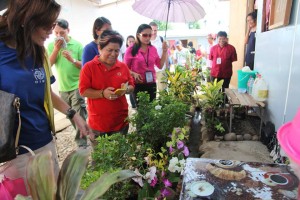Philippine News
Over 1.2-M households in Cebu set to implement KC-NCDDP –DSWD
MANILA — The Department of Social Welfare and Development (DSWD) has said that over 1.2 million households in 555 barangays of Cebu province are set to begin the implementation this year of the expanded Kalahi-CIDSS-National Community-Driven Development Program (KC-NCDDP).
According to DSWD Secretary Corazon J. Soliman, these barangays are in the towns of Alcoy, Asturias, Balamban, Bantayan, Borbon, Carmen, Catmon, Compostela, Consolacion, Cordova, Daan Bantayan, Dumanjug, Ginatilan, Liloan, Madridejos, Medellin, Pilar, Poro, San Francisco, San Remegio, Santander, Sibonga, Sogod, Sta. Fe, Tabogon, Tabuelan, Tuburan and Tudela.
“Together with the province of Cebu, the said municipalities are now in the process of completing their requirements and finalizing institutional arrangements with the DSWD regional office,” Soliman said.
Soliman released the list on Monday based on the result of an enrollment forum conducted last June 24 in Cebu City to discuss the requirements and procedures in joining the scale-up KC-NCDDP implementation from 2014 until 2019.
The forum was a joint partnership of DSWD with the provincial government of Cebu to acquaint the communities on how the KC-NCDDP will be implemented as a poverty alleviation program that uses the community-driven development (CDD) approach.
KC-NCDDP is a national poverty reduction program of the Aquino administration utilizing the CDD approach which empowers barangay residents to identify the problems and needs of their communities and propose solutions in partnerships with their local government units (LGUs).
During the forum, the participants learned that under the program, the communities can propose small-scale infrastructure projects ranging from water systems, school buildings, day care centers and health stations, training and post-harvest facilities.
In addition, they were informed that they could also construct community access roads and bridges which they have to identify as priority project they need to be implemented in their locality or the one that will help them recover faster.
The priority project will have a budget allocation and the implementation will be in the hands of the volunteers of the community which will altogether monitor its construction.
It was also clarified in the forum that the direct implementers of the project are the community residents themselves and the role of local government unit (LGUs) and barangay captains is just providing support to ensure the accomplishment of the program.
Secretary Soliman explained that the CDD strategy is proven effective in developing countries because it makes the governments more responsive in their services and programs by ensuring that there is direct participation of the people who are the beneficiaries themselves.
Moreover, the previous Kalahi-CIDSS (Kapig-Bisig Laban sa Kahirapan-Comprehensive and Integrated Delivery of Social Services) projects implemented in many poor municipalities indicated that the common people have developed unity and empowerment in deciding the projects that they identified to be their arm for development.
Kalahi-CIDSS was first implemented in 2003, initially covering 364 barangays of the approximately 1,400 poor municipalities in the Philippines.
A total of 5,949 community sub-projects were constructed under Kalahi-CIDSS until 2012.
With its scaling up now into KC-NCDDP, it is set to serve more communities on a wider scope of 847 poor municipalities in 58 provinces in 14 regions across the country to boost and intensify the poverty alleviation program of the government by empowering the poor and letting them play key roles as partners in achieving progress.
With a total budget of P43.9 billion, the expanded program will be implemented from this year until 2019 as a legacy of the Aquino administration and as proof of its quest that no one will be left behind in inclusive economic development.
Part of the fund comes from the national government and the rest from the World Bank (USD 479 million) and the Asian Development Bank (USD 372 million) as a sign of support for the pro-poor program to ensure that typhoon “Yolanda”-stricken areas will be given priority in the rebuilding process.
“Prioritizing the said areas will help them (survivors of Yolanda) not to slide deeper into poverty,” said DSWD Secretary Soliman during the launching of the scale-up program a week ago in Ormoc City in Leyte.






















